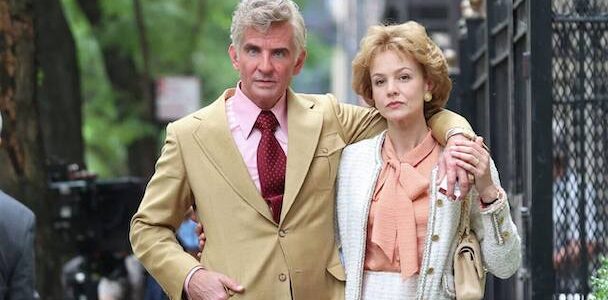
ReelBob: ‘Maestro’ ★★½
By Bob Bloom
“A work of art does not answer questions, it provokes them; and its essential meaning is in the tension between the contradictory answers.”
This quote is the first image that appears on screen in producer-co-screenwriter-director-actor Bradley Cooper’s “Maestro,” a look at the life of composer-conductor Leonard Bernstein.
The movie is not your typical biopic. It is more an examination of a man who lived two lives — one very public and flamboyant: the other, a more private and complex existence.
The first half of “Maestro” is set in the 1940s and ‘50s when men, especially those in the public eye, had to marry and raise a family so as to keep their other personal relationships private.
Yes, Bernstein was bisexual and much time is dedicated to the cost of his double life on himself and his family, most notably his wife, Felicia Montealegre Cohn Bernstein.
Their love story is the foundation of the movie, more so than Bernstein’s musical accomplishments. Which brings me to one of my criticisms of “Maestro.” We only get glimpses of Bernstein’s genius and artistry; very little time is devoted to seeing him create.
Bernstein was one of the finest composers of the 20th century. He created symphonies and the music for such Broadway shows as “West Side Story,” “Candide” and “Wonderful Town” as well as the score for Elia Kazan’s “On the Waterfront.”
Yet his music is relegated to “Maestro’s” soundtrack; it is part of the background of his life.
The film’s bedrock is the love story between Bernstein and his wife, beautifully portrayed by Carey Mulligan.
Montealegre is smitten by Bernstein from the first. She also is no wide-eyed innocent. She has a clear vision of who Bernstein is.
Her love, though, allows her to overlook his proclivities and concentrate more on his career and image. It is as though he is her lifelong reclamation project.
Throughout “Maestro,” it is Montealegre who encourages Bernstein, building up his confidence when he is overcome by self-doubt and helping stoke the fires of his creativity.
The film makes a time jump from the heady 1950s to the 1970s, by which time the Bernsteins have three children. And the years are wearing on Felicia. She is growing tired of his divided focus, which keeps him from his family, as well as his continuous affairs with young men.
She finally comes to the realization that she can neither change nor control the man she so deeply loves.
Mulligan gives a powerful, heartbreaking performance. It is the movie’s foundation.
Cooper’s performance is sincere, dynamic, brash, affected and somewhat schizophrenic, sometimes subdued and doubtful of his own talent, other times chatty and ostentatious. He also, at times, is thoughtless and very much self-centered.
Still, “Maestro” is a fascinating film. It’s main problem is its lack of balance. As the director and co-screenwriter, Cooper cannot settle on a singular path to tell Bernstein’s story.
At times, “Maestro” soars, but other instances it ignores or misplays notes.
I am a founding member of the Indiana Film Journalists Association. I review movies, 4K UHD, Blu-rays and DVDs for ReelBob (ReelBob.com), The Film Yap and other print and online publications. I can be reached by email at bobbloomjc@gmail.com. You also can follow me on Twitter @ReelBobBloom and on Facebook at ReelBob.com or the Indiana Film Journalists Association. My movie reviews also can be found at Rotten Tomatoes: www.rottentomatoes.com.
MAESTRO
2 ½ stars out of 4
(R), sexual content, language
